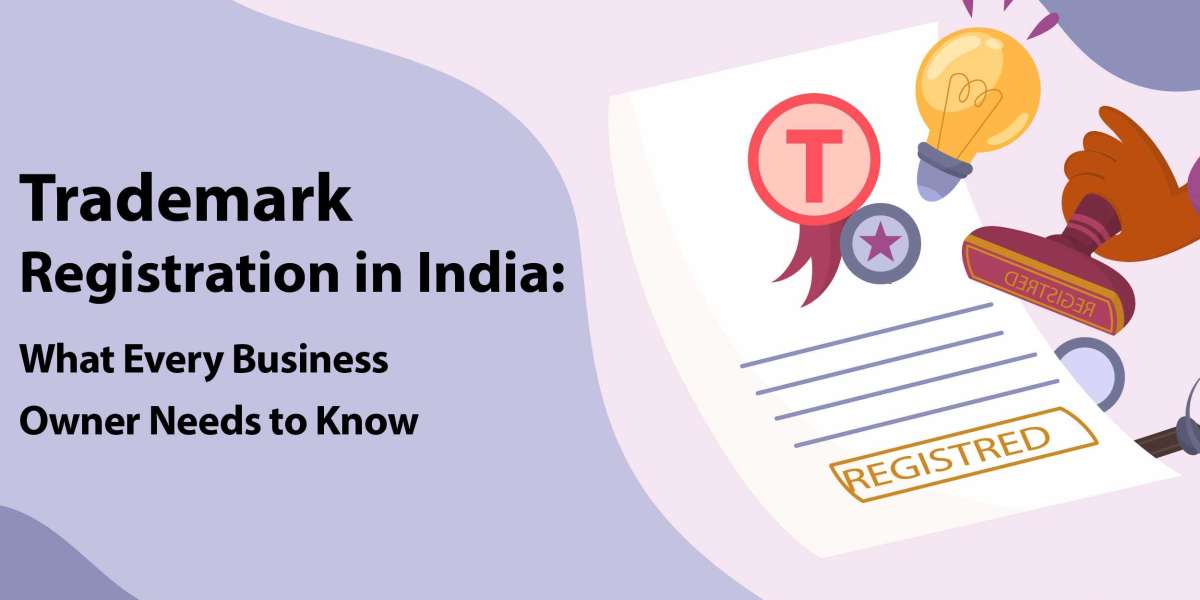In today's competitive business environment, protecting your brand is more important than ever. A trademark is one of the most effective tools for safeguarding your brand's identity, and registering it in India can provide legal protection and ensure exclusive rights to your brand. Whether you're a small business owner or running a large corporation, understanding the essentials of trademark registration in India is crucial. Here’s what you need to know.
1. What is a Trademark?
A trademark is a recognizable sign, design, or expression that identifies and distinguishes products or services of a particular source from those of others. It can include anything from a company’s logo, name, slogan, or even a sound. A registered trademark provides the owner with exclusive rights to use the mark in relation to the goods or services for which it is registered.
2. Why Register a Trademark in India?
1. Legal Protection: Registering your trademark grants you legal protection against unauthorized use by others. It gives you the exclusive right to use the trademark for the goods or services it covers.
2. Brand Identity: A trademark establishes a unique identity for your brand, differentiating it from competitors.
3. Asset Creation: A trademark is an intangible asset that can increase in value over time. It can be licensed or franchised, creating additional revenue streams.
4. Nationwide Protection: Registration in India offers protection across the country, irrespective of whether you operate in one state or across multiple regions.
5. Legal Recourse: If someone infringes on your trademark, you can take legal action against them. Without registration, your options for legal recourse are limited.
3. Types of Trademarks in India
In India, trademarks can be categorized into different types, including:
1. Product Marks: Identifies goods or products.
2. Service Marks: Identifies services.
3. Collective Marks: Used by a group or association to identify the source of the goods or services.
4 Certification Marks: Indicates that the goods or services meet certain standards.
5. Shape Marks: Protect the shape of goods or packaging.
4. Steps to Register a Trademark in India
Step 1: Trademark Search
Before applying, conduct a trademark search to ensure that your proposed mark is unique and not already in use. This can be done through the online database of the Controller General of Patents, Designs, and Trademarks.
Step 2: Filing the Application
You can file a trademark application online or at the Trademark Registry Office. The application should include details like the applicant's name, trademark name, logo, and the class of goods or services.
Step 3: Examination of the Application
After filing, the Registrar examines the application to ensure it complies with all legal requirements. If the trademark is found to be similar to an existing one or violates any trademark laws, the application may be objected to.
Step 4: Publication in the Trademark Journal
If the application passes the examination, it is published in the Trademark Journal. This step allows others to oppose the registration if they believe it infringes on their existing rights.
Step 5: Trademark Registration
If no oppositions are filed within four months from the publication date, the trademark is registered, and a certificate of registration is issued to the applicant.
5. Validity and Renewal
A Registered trademark in India is valid for ten years from the date of application. It can be renewed indefinitely for successive ten-year periods. Trademark Renewal applications should be filed before the expiration date to avoid additional fees.
7. Common Mistakes to Avoid
1. Not Conducting a Trademark Search: Failing to conduct a thorough search can lead to application rejection or legal disputes.
2. Inaccurate Classification: Selecting the wrong class for goods or services can limit the scope of your trademark protection.
3. Delayed Renewal: Not renewing your trademark on time can result in loss of protection and additional costs.
8. Conclusion
Trademark Registration is a vital step in protecting your brand in India. It not only provides legal security but also strengthens your brand’s market position. By understanding the registration process, costs, and potential pitfalls, business owners can ensure their brand is well-protected and positioned for success.
Whether you're starting a new venture or expanding an existing one, securing your trademark should be a top priority. If you're unsure about the process, consider consulting with a legal expert to guide you through the complexities of trademark registration in India.








